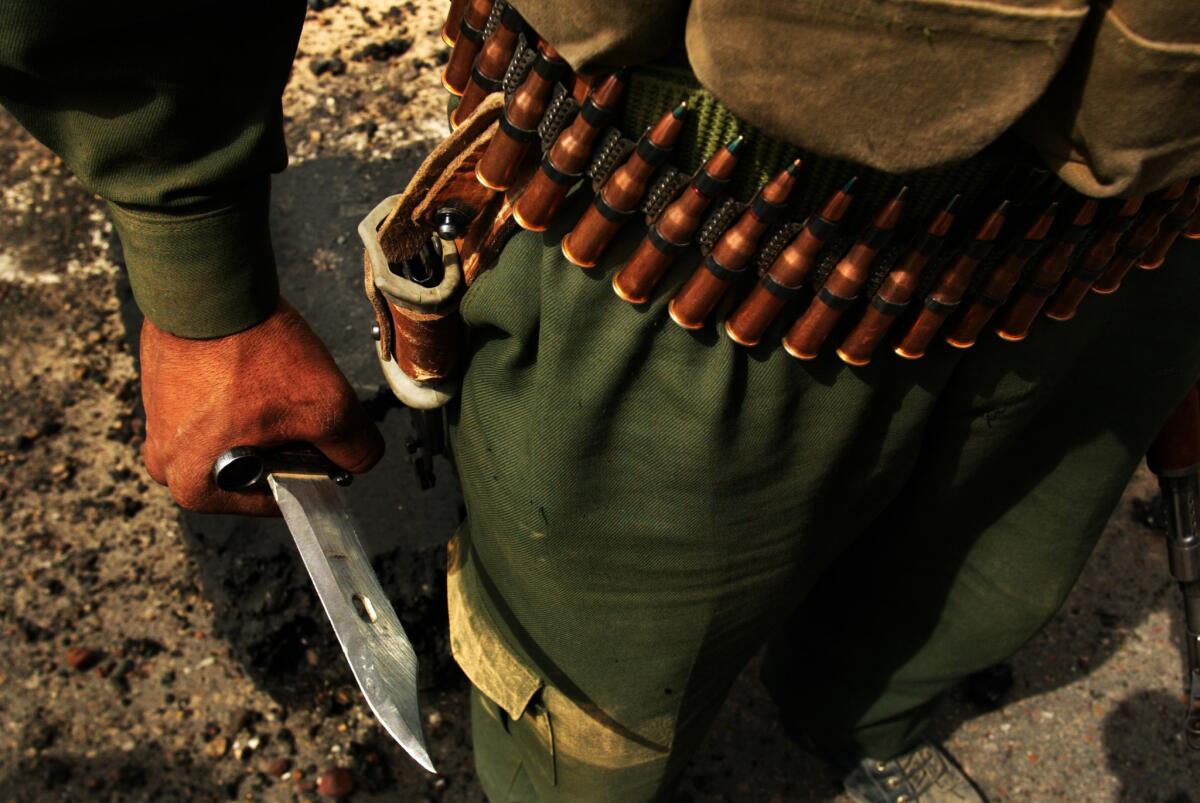War: Is it really just about getting the ladies?

It’s a question that’s caused more than a few brawls among academics: Just why do humans engage in bloody combat when the risk to life and limb is so high?
Some anthropologists have argued that warfare must confer an evolutionary benefit to warriors, or else why would they take part?
But the idea that organized violence might improve the reproductive success of warriors is a controversial hypothesis, and one that has proved difficult to substantiate.
Now, in a paper published Monday in the journal PNAS, researchers at Harvard University say that after studying small tribal populations in eastern Africa, they’ve shown that warfare does result in more wives and children for certain warriors.
The research focuses on the Nyangatom, a group of about 30,000 nomadic agro-pastoralists who inhabit a remote region along the southern border of Ethiopia and South Sudan.
The Nyangatom frequently come to blows with several other ethnic groups in the region, but the bloodshed has nothing to do with ideology, religion or national borders.
Instead, the fuss is all about livestock.
Anthropologists Luke Glowacki and Richard Wrangham wrote that livestock play a key role in Nyangatom society. In order for men to marry, their family must offer a bridewealth, or payment of livestock, to the bride’s family.
Males in a Nyangatom family are married off in birth order, so if a boy has many older brothers, the family will likely have paid out much of its livestock for their marriages, leaving little for him. Likewise, if he has few sisters, the family won’t see much income in livestock from their marriage.
The study authors set out to determine whether men who found themselves in livestock-poor circumstances might be particularly motivated to participate in livestock raids, seeing it as the only way of collecting bridewealth for one or more wives.
What they found was that young men did not get married, or have children, at any greater rate if they participated in armed livestock raids. This was probably due largely to the fact that young raiders were pressured into giving captured livestock to older relatives -- a societal obligation the young men were not happy about.
However, that’s not the end of the story.
The study authors found that Nyangatom warriors who raided more often in youth had more wives and children when they became elders. This was especially true for elders who were considered to have been “prolific raiders” in their younger days.
“The explanation for this relationship that is most consistent with our quantitative and qualitative ethnographic data are that raiders received delayed access to bridewealth,” the authors wrote.
“Overall, our results provide support for the more general proposition that warriors participating in small-scale warfare tend to receive fitness-enhancing benefits. However, the way in which benefits accrue will vary depending on specific cultural constraints,” the authors wrote.
Follow @montemorin for science news







